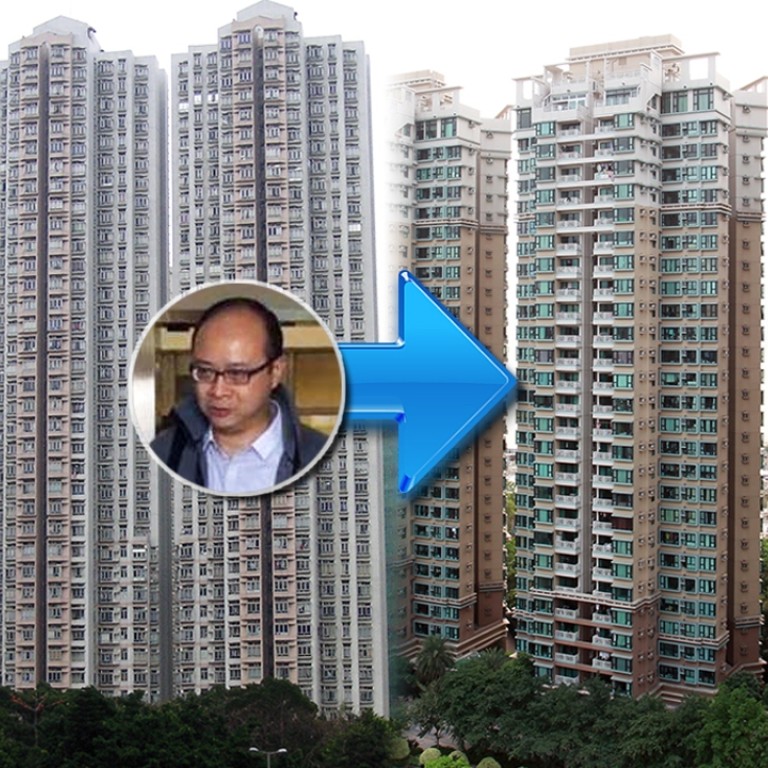
Hong Kong homeowner wins legal battle over property cooling measures
High Court awards Ho Kwok-tai HK$273,750, half of the stamp duty he paid for selling two flats
A homeowner has won a legal battle and been awarded hundreds of thousands dollars, after a court ruled that a tax collector misinterpreted an amended ordinance intended to curb housing speculation.
On Thursday the High Court awarded Ma Wan resident Ho Kwok-tai HK$273,750, half of the stamp duty he paid for selling two flats in Tsing Yi in 2013.
The bone of contention was the amended Stamp Duty Ordinance, introduced in 2014, which was intended to curb property speculation. It imposes double stamp duty but allows an exemption for owners who buy a new property for their own use and sell their previous home within six months.
But Ho sold two small flats to buy a bigger one for his family and as such did not get the tax refund. He wanted the court to review the decision and order a refund.
In the judgment on Thursday, Deputy High Court judge Mr Brian Keith dismissed the tax collector’s interpretation, saying that even though “property” appeared to be described in the ordinance as singular, it could also be read as plural.
He said the regulator seemed to contradict what was suggested by the government over the provision concerned, to avoid users like Ho being charged the new rate.
“A mismatch between what the government may have intended and what the executive thought had been intended is fortunately quite rare, but this may have been one of this very infrequent occasions when that was happened,” he wrote.
He noted one would qualify for the refund as long as he was not a “beneficial owner of any other residential property in Hong Kong”, according to law. By selling both of his properties, Ho had achieved that, he said.
The way the tax collector interpreted the law seemed to go against the government intent, which he referred to as an “irony”.
Eddie Hui Chi-man, a professor who specialises in real estate studies at Polytechnic University, said the ruling was reasonable.
He said the provisions relating to the additional stamp duties in the Stamp Duty Ordinance, with their high complexity, might have created a few grey areas.
“The ruling may set a precedent for future similar cases, and help clarify the application and scope of the law,” said Hui.
The Inland Revenue Department said it would study the judgment carefully and consider its next step after seeking legal advice.
It did not disclose whether there were similar cases pending. Real estate agents’ views differed on the ruling’s effects. Centaline Property managing director Louis Chan Wing-kit said: “Owners of multiple flats would have a greater incentive to offload all the units in their possession to raise funds to buy a bigger home.”
“It will give a boost to the luxury home market,” Chan predicted.
Midland Realty’s residential chief executive, Sammy Po Siu-ming, however, said it was just an individual case.
It was unlikely the local property sector would be affected, he added.


